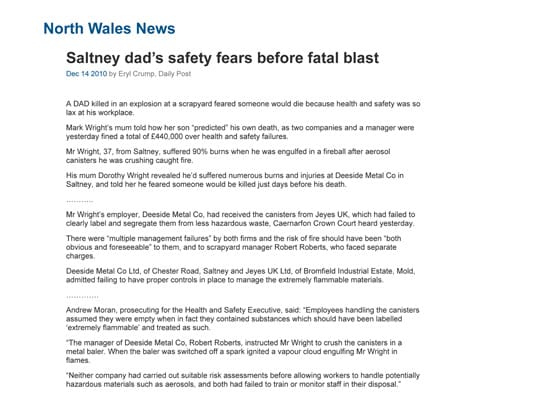One of New Zealand’s coroners, Ian Smith, has set a safety challenge to the OHS regulatory and quad bike distributors. In the coronial findings (not available online) into the 2008 death of 21-year-old beekeeper, Jody Santos, Coroner Smith has recommended to the Ministers for Transport and Labour:
“The Court endorses the new educational and enforcement programme being proposed by the Department of Labour, but considers that both Ministries undertake an immediate investigation to consider the mandatory installation of:
(i) The compulsory wearing of helmets when operating ATVs in any circumstances; and
(ii) The installation of a roll bar on all A TVs/quad bikes; and
(iii) The installation of lap belts on all ATVs/quad bikes.”
The Department of Labour (DoL) specifically requested that the Coroner remove the mandatory installation recommendation. Continue reading “NZ Coroner presses for changes in quad bike safety”

 SafetyAtWorkBlog has been following the discussions about
SafetyAtWorkBlog has been following the discussions about 